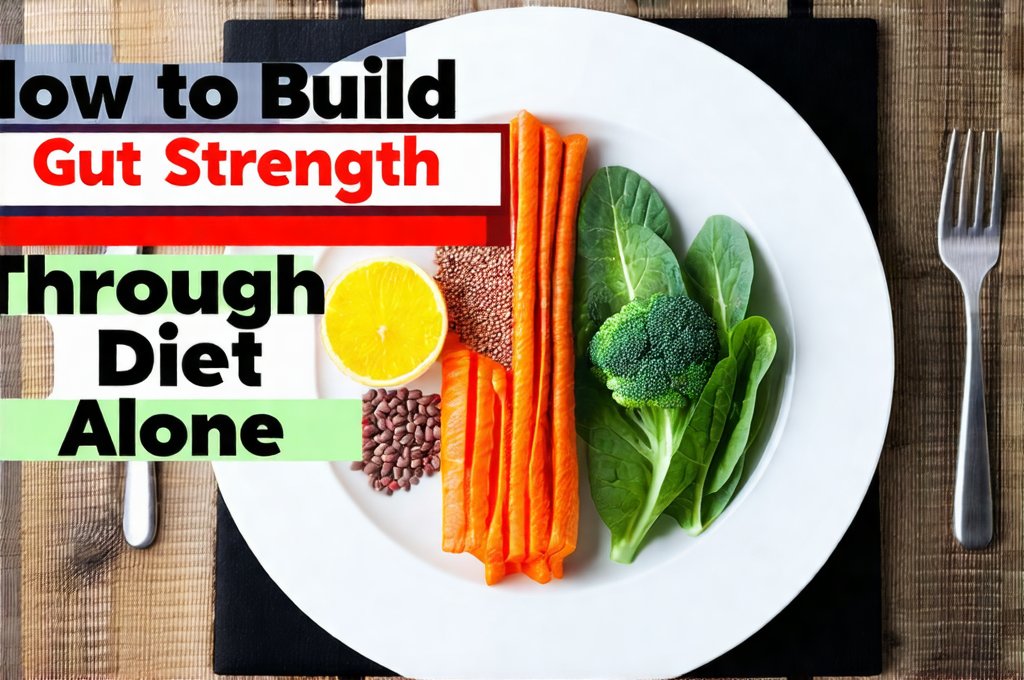The gut microbiome – often called our “second brain” – is a complex ecosystem within our digestive system teeming with trillions of microorganisms, including bacteria, fungi, viruses, and archaea. This intricate community profoundly impacts not just digestion, but also immunity, mental health, hormone regulation, and even chronic disease risk. For years, the focus was largely on killing harmful bacteria, but we now understand that a healthy gut isn’t about eradication; it’s about fostering diversity and balance. Building gut strength is less about aggressive intervention and more about consistently nourishing the beneficial microbes already residing within us – and encouraging them to flourish. It’s about creating an environment where they can thrive, leading to improved overall wellbeing.
Traditionally, gut health was often addressed with probiotic supplements, but increasingly, research points towards diet as the primary driver of microbiome composition. While probiotics can be helpful in specific circumstances, long-term dietary changes offer a more sustainable and impactful approach to cultivating a robust and resilient gut. This is because food provides the prebiotics – essentially the fuel – for these beneficial bacteria, allowing them to proliferate and outcompete less desirable microorganisms. It’s not just about avoiding “bad” foods; it’s about actively including an abundance of nutrient-rich options that support a thriving gut ecosystem. The goal isn’t perfection, but rather consistent choices that prioritize microbial diversity and function.
Dietary Foundations for Gut Strength
A foundational approach to building gut strength begins with understanding the types of foods that feed beneficial bacteria and those that can disrupt microbiome balance. Processed foods, high in sugar and unhealthy fats, tend to diminish microbial diversity and promote inflammation – both detrimental to gut health. Conversely, a diet rich in whole, unprocessed foods provides the necessary fiber, polyphenols, and other compounds that nurture a healthy gut ecosystem. Prioritizing plant-based foods is arguably the single most impactful dietary change you can make. This isn’t necessarily about eliminating animal products entirely; it’s about making plants the cornerstone of your diet.
Fiber is the indigestible part of plant foods, and it’s crucial for gut health because beneficial bacteria ferment it in the colon, producing short-chain fatty acids (SCFAs). SCFAs like butyrate are essential for gut barrier integrity, reducing inflammation, and even influencing brain function. Different types of fiber feed different bacterial species, highlighting the importance of dietary variety. Think beyond just adding more bran; incorporate a wide range of fruits, vegetables, legumes, and whole grains into your meals.
Beyond fiber, polyphenols are powerful plant compounds with antioxidant and anti-inflammatory properties that also benefit gut bacteria. Found abundantly in berries, dark chocolate (yes!), green tea, and even coffee, polyphenols aren’t easily digested by humans but are happily consumed by our gut microbes, further enhancing diversity and function. Focusing on a rainbow of colorful produce ensures you’re maximizing your polyphenol intake – and providing a diverse range of nutrients for both yourself and your microbiome.
Fermented Foods: A Microbial Boost
Fermented foods are naturally rich in probiotics – live microorganisms that can temporarily colonize the gut, offering immediate benefits. While not a substitute for long-term dietary habits, incorporating fermented foods regularly can provide a quick boost to microbial diversity and improve digestive function. – Kefir, a fermented milk drink, is an excellent source of diverse probiotic strains. – Sauerkraut (unpasteurized) provides beneficial bacteria alongside fiber. – Kimchi, the Korean staple made from fermented vegetables, offers similar benefits. – Kombucha, a fermented tea beverage, can contribute to gut health but watch for added sugar content.
It’s important to note that the probiotic content of commercial fermented foods can vary significantly. Homemade versions often contain more diverse and robust microbial communities. When introducing fermented foods, start small to avoid digestive upset; some people may experience bloating or gas initially as their gut microbiome adjusts. The key is gradual introduction and consistent consumption to reap the benefits.
Hydration & Gut Health: An Often Overlooked Factor
Adequate hydration is paramount for overall health, but it plays a particularly important role in gut function. Water helps move fiber through the digestive tract, preventing constipation and promoting regular bowel movements – essential for eliminating waste products and maintaining a healthy microbiome. Dehydration can lead to constipation, which allows harmful bacteria to proliferate while reducing beneficial microbial activity.
Furthermore, water supports the production of mucus in the gut, which acts as a protective barrier against pathogens. Aiming for at least eight glasses of water per day is a good starting point, but individual needs may vary depending on activity level and climate. Consider incorporating hydrating foods like cucumber, watermelon, and celery into your diet to further boost your fluid intake. Don’t underestimate the power of simple hydration in supporting gut health.
Mindful Eating & Digestion
The way we eat is just as important as what we eat. Rushing through meals without proper chewing can impair digestion and reduce nutrient absorption, placing undue stress on the digestive system. Stress also directly impacts gut health; when stressed, our bodies divert blood flow away from the digestive tract, hindering optimal function. Mindful eating – paying attention to your food, savoring each bite, and eating in a relaxed environment – promotes better digestion and reduces stress.
Here’s how to incorporate mindful eating: 1. Sit down to eat without distractions (TV, phone). 2. Chew your food thoroughly before swallowing. 3. Eat slowly and deliberately. 4. Pay attention to hunger and fullness cues. 5. Express gratitude for your food. This practice not only enhances digestion but also fosters a deeper connection with your body and the nourishment it receives, ultimately contributing to a healthier gut microbiome.




